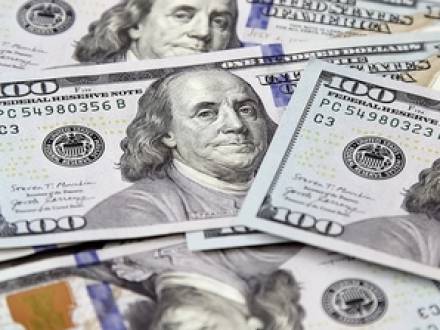What Income Is Exempt in a Maryland Chapter 7 Bankruptcy?
 When a person files for Chapter 7 bankruptcy in Maryland, one of the biggest fears is often the fear of losing everything – including the income relied on to survive. Fortunately, bankruptcy law does not take into account every source of income. Both federal and Maryland exemption laws protect specific types of earnings and benefits from being seized by the bankruptcy trustee.
When a person files for Chapter 7 bankruptcy in Maryland, one of the biggest fears is often the fear of losing everything – including the income relied on to survive. Fortunately, bankruptcy law does not take into account every source of income. Both federal and Maryland exemption laws protect specific types of earnings and benefits from being seized by the bankruptcy trustee.
If you are wondering whether all your income will be taken in bankruptcy, it can be beneficial to speak to a knowledgeable Greenbelt, MD Chapter 7 bankruptcy attorney. Your attorney can help you determine whether filing for Chapter 7 is correct for you.
Understanding Income in a Maryland Chapter 7 Bankruptcy Case
Those who file for Chapter 7 bankruptcy must pass a means test in Maryland. This is used to determine whether the debtor’s income is low enough to qualify for Chapter 7 bankruptcy, following a two-step process. The initial step requires the calculation of current monthly income (CMI) by averaging all sources of your gross income over the six months prior to filing.
"Income" for this purpose includes wages (wages earned after you file for bankruptcy are not part of the bankruptcy estate and are yours to keep), business income, rental income, dividends, interest, and regular contributions from others that go toward household expenses. The average monthly income is then compared to the median income for a household of the same size in Maryland. If the income is below the Maryland median, the means test is automatically passed, and the individual may file for Chapter 7 bankruptcy.
If the income is above the Maryland median income, a second step is necessary. Those whose income exceeds the state median must demonstrate that they do not have enough disposable income to repay a significant portion of the debts through a Chapter 13 plan. This involves filling out Form 122A-2, the Chapter 7 Means Test Calculation. Allowable expenses include:
- Reasonable basic living costs for housing, utilities, transportation, clothing, and food
- Taxes and mandatory payroll deductions
- Court-ordered payments like spousal and child support
- Secured debt payments for mortgages and car loans
- Health insurance premiums and out-of-pocket medical expenses
After subtracting all allowable expenses from the total income, if the remaining disposable income over a five-year period is below a specific threshold, the individual passes the means test and may file Chapter 7 bankruptcy. Disabled veterans and those whose debts are primarily business debts are generally exempt from the means test.
What Income is Exempt in Maryland for Chapter 7 Bankruptcy?
Up to 75 percent of disposable wages or $145 per week (whichever is greater) is exempt from income calculations. Social Security payments, SSI, and Veterans’ benefits are all exempt from income calculations. Other types of income that are generally exempt from Chapter 7 income calculations include:
- Qualified retirement accounts (401(k) and IRA pensions)
- State employee pensions
- Teacher retirement funds
- Workers’ compensation benefits
- Disability benefits
- Alimony and child support (exempt only to the extent reasonably necessary for support)
- Life insurance proceeds when they are payable to a spouse, child, or dependent up to $12,000.
Unemployment compensation is in a "gray" area; the U.S. Trustee Program states that unemployment compensation is not a benefit under the Social Security Act, so it should be included in income calculations. Other legal interpretations argue that because the federal unemployment insurance program was established as part of the Social Security Act of 1935, benefits should be excluded from income calculations. Large tax refunds may be partially non-exempt unless tied to the Earned Income Credit, which is protected.
Contact a Greenbelt, MD Bankruptcy Lawyer
If you are worried about what income will be considered when calculating whether you are eligible to file for Chapter 7 bankruptcy, speak to a skilled Largo, MD Chapter 7 bankruptcy lawyer from The Law Office of Donald L. Bell. Attorney Bell is currently the chair of the National Bar Association’s Bankruptcy section and is highly experienced in offering hands-on guidance to those who find themselves drowning in debt. With more than 20 years of experience, Attorney Bell focuses on saving homes during bankruptcy. Call 301-614-0535 to schedule your free consultation (businesses require a consultation fee).






